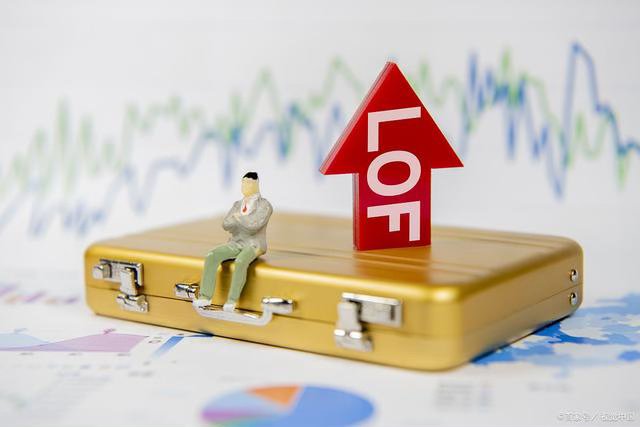The Benefits and Risks of Investing in Foreign Real Estate
Oct 22, 2023 By Susan Kelly
Advertisement
Investing in foreign real
estate can be an attractive and lucrative option for many investors. Foreign real estate can
offer diversification, growth, income, and lifestyle benefits that may not be available in your
home country. However, investing in foreign real estate also comes with some challenges and
risks that you need to be aware of and prepared for. In this article, we will explore the
benefits and risks of investing in foreign real estate, and provide some tips and best practices
to help you make informed and successful decisions.
Benefits of Investing in Foreign
Real Estate
There are many reasons why investors may choose to invest in foreign real
estate, such as:
- Diversification: Investing in foreign real estate can help you
diversify your portfolio across different markets, currencies, and asset classes. This can
reduce your exposure to the risks and volatility of your home market, and increase your
potential returns from different sources of growth and income. For example, if your home market
is experiencing a downturn, you may still benefit from the appreciation and rental income of
your foreign property in a booming market. Similarly, if your home currency is depreciating, you
may still benefit from the exchange rate gains of your foreign property in a strong
currency.
- Growth: Investing in foreign real estate can help you access the growth
opportunities and potential of emerging and developing markets. These markets may offer higher
economic growth, population growth, urbanization, and demand for real estate than developed
markets. For example, according to the World Bank, the GDP growth rate of low-income and
middle-income countries was 3.6% in 2020, compared to 1.4% for high-income countries¹. These
factors can drive up the value and appreciation of your foreign property over time.
- Income:
Investing in foreign real estate can help you generate passive income from rental yields and
capital gains. Rental yields are the annual rental income divided by the property value,
expressed as a percentage. Capital gains are the profits you make when you sell your property
for more than you bought it. Depending on the location, type, and quality of your foreign
property, you may be able to charge higher rents and enjoy higher occupancy rates than your home
market. You may also be able to benefit from favorable tax laws and incentives that reduce your
tax liability on your rental income and capital gains. For example, some countries may offer tax
exemptions, deductions, credits, or treaties for foreign investors².
- Lifestyle: Investing
in foreign real estate can help you improve your quality of life and fulfill your personal or
professional goals. You may be able to enjoy the climate, culture, amenities, and attractions of
your foreign destination. You may also be able to use your foreign property as a vacation home,
a retirement home, or a second home. You may also be able to obtain residency, citizenship, or
visa benefits that allow you to live, work, study, or travel in your foreign country or region.
For example, some countries may offer residency or citizenship by investment programs that grant
you legal rights and privileges in exchange for your investment in real estate or other
sectors³.
Risks of Investing in Foreign Real Estate
While investing in foreign
real estate can offer many benefits, it also involves some challenges and risks that you need to
be aware of and prepared for, such as:
- Market risk: Investing in foreign real estate
exposes you to the market risk of your foreign destination. Market risk is the risk of losing
money due to changes in the market conditions and performance of your foreign property. These
changes may be influenced by factors such as supply and demand, competition, regulation,
infrastructure, environment, politics, and social issues. For example, if your foreign market is
experiencing an oversupply of properties, a lack of demand, a regulatory change, a natural
disaster, a political unrest, or a social conflict, the value and income of your foreign
property may decline or stagnate.
- Currency risk: Investing in foreign real estate exposes
you to the currency risk of your foreign destination. Currency risk is the risk of losing money
due to changes in the exchange rate between your home currency and your foreign currency. These
changes may be influenced by factors such as inflation, interest rates, trade balance, fiscal
policy, monetary policy, and geopolitical events. For example, if your home currency appreciates
against your foreign currency, the value and income of your foreign property in your home
currency may decrease or erode.
- Legal risk: Investing in foreign real estate exposes you to
the legal risk of your foreign destination. Legal risk is the risk of losing money due to the
differences or changes in the legal system and framework of your foreign country or region.
These differences or changes may affect your property rights, ownership structure, title
transfer, contract enforcement, dispute resolution, taxation, and compliance. For example, if
your foreign country or region has a different or unclear property law, a different or complex
ownership structure, a different or unreliable title system, a different or inefficient contract
system, a different or costly dispute system, a different or unfavorable tax system, or a
different or stringent compliance system, you may face difficulties or losses in acquiring,
owning, managing, selling, or profiting from your foreign property.
- Operational risk:
Investing in foreign real estate exposes you to the operational risk of your foreign
destination. Operational risk is the risk of losing money due to the difficulties or
inefficiencies in the operation and management of your foreign property. These difficulties or
inefficiencies may arise from factors such as distance, language, culture, communication,
information, expertise, quality, reliability, and trust. For example, if you are not physically
present or fluent in the language or culture of your foreign destination, you may face
challenges or errors in finding, negotiating, closing, maintaining, renting, or selling your
foreign property. You may also face challenges or risks in finding, hiring, communicating, or
trusting local professionals, such as agents, lawyers, accountants, managers, or contractors, to
help you with your foreign property.
Tips and Best Practices for Investing in Foreign
Real Estate
To overcome the challenges and risks of investing in foreign real estate, and
to maximize the benefits and opportunities, you need to follow some tips and best practices,
such as:
- Do your research: Before investing in foreign real estate, you need to do your
homework and research thoroughly about your foreign destination and property. You need to
understand the market conditions, trends, opportunities, and risks of your foreign destination.
You need to analyze the location, type, quality, and value of your foreign property. You need to
compare and contrast different properties, markets, and countries or regions. You need to use
reliable and updated sources of information, such as official websites, databases, reports,
publications, and statistics. You need to consult with experts and professionals, such as
agents, lawyers, accountants, managers, and contractors, who have experience and knowledge in
your foreign destination and property.
- Plan your budget: Before investing in foreign real
estate, you need to plan your budget and finances carefully and realistically. You need to
determine how much money you can afford and are willing to invest in your foreign property. You
need to consider all the costs and expenses involved in your foreign property, such as purchase
price, closing costs, taxes, fees, commissions, maintenance, repairs, utilities, insurance, and
management. You need to consider all the sources and methods of financing your foreign property,
such as cash, savings, loans, mortgages, equity, or partnerships. You need to consider all the
potential returns and income from your foreign property, such as appreciation, rental,
dividends, interest, and capital gains. You need to consider the exchange rate and currency
fluctuations between your home currency and your foreign currency. You need to create a
realistic and conservative cash flow and return on investment (ROI) analysis for your foreign
property.
- Choose your strategy: Before investing in foreign real estate, you need to choose
your strategy and goals for your foreign property. You need to decide why and how you want to
invest in your foreign property. You need to decide whether you want to invest for the long term
or the short term, for the passive income or the active income, for the value or the growth, for
the personal use or the commercial use, or for the residency or the citizenship. You need to
align your strategy and goals with your risk tolerance, time horizon, and investment objectives.
You need to evaluate and monitor your strategy and goals regularly and adjust them
accordingly.
- Follow the rules: Before investing in foreign real estate, you need to follow
the rules and regulations of your foreign destination and property. You need to comply with the
legal system and framework of your foreign country or region. You need to respect the property
rights, ownership structure, title transfer, contract enforcement, dispute resolution, taxation,
and compliance of your foreign country or region. You need to obtain the necessary permits,
licenses, approvals, and registrations for your foreign property. You need to pay the required
taxes, fees, and duties for your foreign property. You need to hire and work with qualified and
reputable professionals, such as agents, lawyers, accountants, managers, and contractors, who
can help you with the legal and regulatory aspects of your foreign property.
#
Conclusion
Investing in foreign real estate can be a rewarding and profitable venture,
but it also comes with some challenges and risks that you need to be aware of and prepared for.
By following the tips and best practices discussed in this article, you can overcome the
challenges and risks, and maximize the benefits and opportunities, of investing in foreign real
estate. You can diversify your portfolio, access the growth and income potential of different
markets and currencies, and enjoy the lifestyle and legal benefits of different countries and
regions. However, you also need to do your research, plan your budget, choose your strategy, and
follow the rules of your foreign destination and property. Investing in foreign real estate is
not a one-sizefits-all strategy, but a personal and customized one. Therefore, you should always
do your own research and due diligence before investing in any foreign property, and consult
with a professional financial planner or advisor if you need any guidance or assistance.

Triston Martin Nov 07, 2023
Unlocking the Path to Earning Your First Million: Strategies for Ordinary Individuals.

Triston Martin Nov 08, 2022
The Wealthiest of the Web: How American Internet Stars Are Earning Big Bucks

Susan Kelly Nov 23, 2023